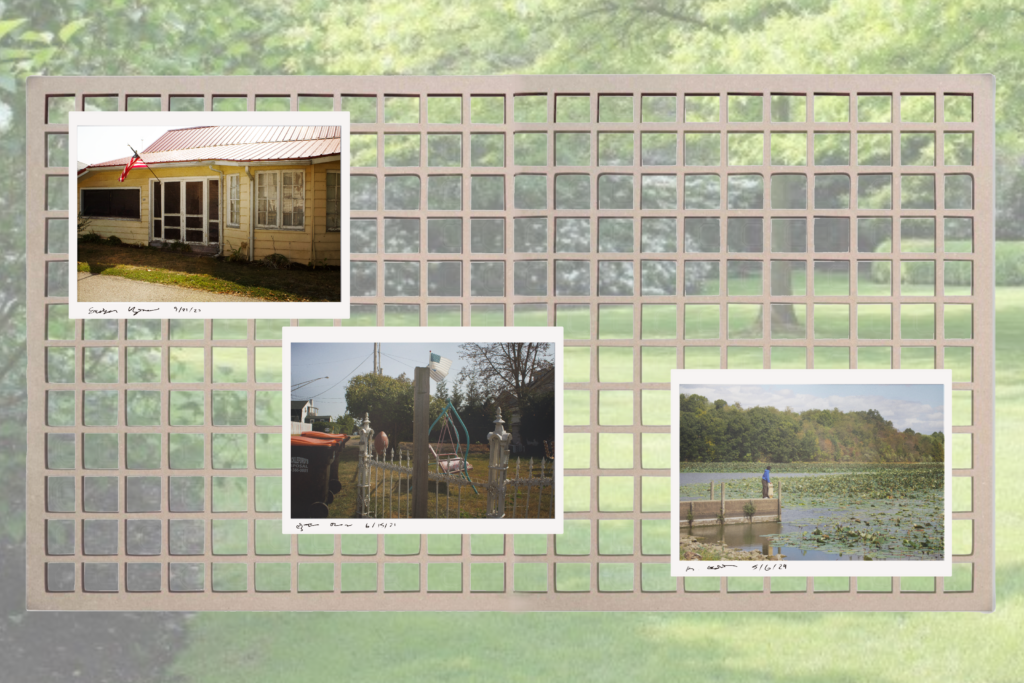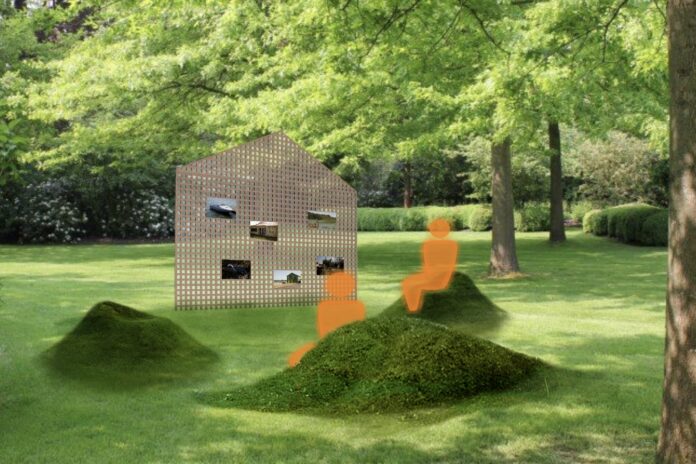Above: Collage and sketch of “Living Lawn” area

The “Living Lawn” is an outdoor seating area centered around a display of crowdsourced images from local residents. Photos are submitted, curated, and printed on weather-resistant vinyl to be hung in state parks as a reflection of the local culture/identity.
When interviewing my WGSS Women Writer’s professor, Cindy, she mentioned that it’s common for people to dump cars and large appliances over cliffs in West Virginia. It’s only a matter of time before nature grows and reclaims the dumped items. Once out of sight and out of mind, the dumping culture continues. The grass covered furniture references Cindy’s anecdote. While the underlying ‘furniture’ might be covered by grass, it still leaves an imprint. Above is a “living room” space, by collecting people’s home goods they don’t want anymore, other spaces such as dining rooms, kitchens, etc. could also be created.
In the “Gentrification of Rural Communities” article, the excerpt from Ryanne Pilgeram’s Pushed Out describes the effects of gentrification in Dover, Idaho. One consequence is a rise in inauthentic portrayals of local history. Another consequence is restricting local residents’ access to previously public lands. The photography display in the “Living Lawn” provides residents an outlet to define their own history, while modeling the lawn features as a living space encourages the sharing of old residents, new residents, and visitors alike.
“Living Lawn” mitigates waste by turning unwanted appliances that would otherwise end up in landfills or abandoned, into lawn features to be shared publicly. Because “Living Lawn” is modeled after home-like spaces, perhaps visitors will be reminded that courteous guests are mindful of the mess they make.
A few details that would need to be ironed out include maintenance of the lawnscape, long-term integrity of grass-furniture, and the system in which photos are acquired.
Ryanne Pilgeram. (2021). Pushed Out. University of Washington Press. https://inthesetimes.com/article/gentrification-of-the-rural-west




